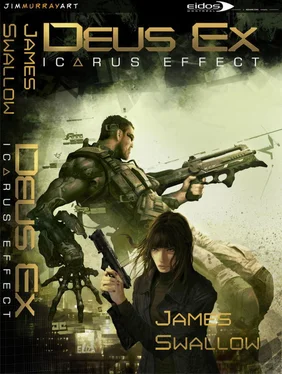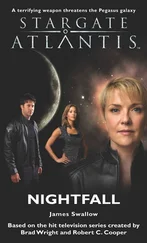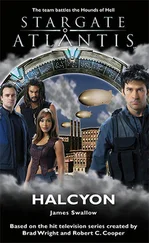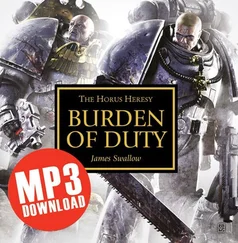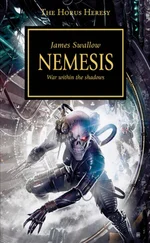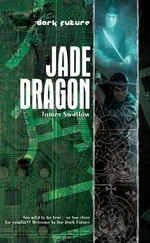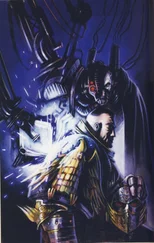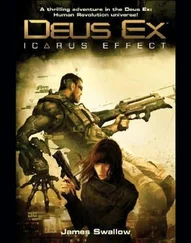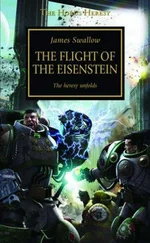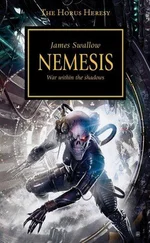Anna felt a chill run through her. “So… What happens now?”
Temple folded his arms. “If things were different… I’d charge you myself. But the fact is, what with that pit bull sniffing around the Service looking for some dirt, the agency needs to keep this in-house.” The “pit bull” was Florida governor Philip Riley Mead, who was working the angles on Capitol Hill, using every trick he could—including pouring scorn on the DeSilvio administration by shining a light on every mess he could find. Some people called him a crusader for good, speaking about him taking the Oval Office for himself one day; but Kelso just saw a bland, opportunist politician who was nothing but good teeth and hollow platitudes. “We’re going to deal with this quietly,” Temple went on.
He handed her the packet and then drew a thin envelope from the pocket of his coat. Inside there was a credit chip and an airline ticket.
Temple fixed her with a steady, measuring gaze. “Your badge and ID have already been deauthorized. I’ve reclaimed your service firearm. As of this moment, you are officially on medical suspension. In a month, when this has all been forgotten, a closed-session review of your conduct will be held, and you will be discharged from the Secret Service, forfeiting pension and all privileges. At the very least.” He stood up. “The ticket will get you back to Washington. Do yourself a favor, Agent Kelso. Go home. Let this go. Let Matt go.” He gathered up the evidence bag with the stims and grimaced at it. “And don’t make things any worse for yourself.”
After he left her alone, the restraint loop gave a buzz and fell off her wrist. Anna picked up the packet and something slipped out. A brass coin clattered to the table; her sobriety chip. For a long moment, she thought about leaving it where it had fallen. Angrily, she snatched it up and jammed it in her pocket.
Zubovskaya Square—Moscow—Russian Federated States
The night-black helo circled once over the buildings along Burdenko Street, the ducted rotor-rings turning, the sound-deadening baffles humming. The boxy little flyer hugged the angular tops of the offices and apartment blocks, skimming over old tiled roofs cheek-by-jowl with modern polyglass domes and sheets of solar paneling. The nose of the craft dipped as Hardesty dropped from the starboard side; then they were rising up and away, describing a wide circuit around the lines of the plaza at Zubovskaya.
Saxon straightened the Kevlar balaclava over his face and peered through his polarized eye-shields. Ahead he could see the roof of the Hotel Novoe Rostov. The team had reviewed the deployment on the way from the airport, and they were ready.
He took a breath and ran through his own internal checklist, ending it with a last look at the ammo selector on the Hurricane tactical machine pistol that hung from his shoulder strap. The compact submachine gun was all ABS plastic and black-anodized steel, the blunt muzzle lost behind a triangular suppressor.
“Twenty seconds.” Namir’s words came over his mastoid, buzzing in Saxon’s skull. The subvocalized radio message had the peculiar echo to it that made encrypted comms sound as if they were being beamed down from space.
Saxon frowned. They were cutting it fine. The sun was rising, and the morning light would cost them good cover if they didn’t move fast. Then Hardesty spoke over the general channel.
“In position,” he said. “Three targets. Green light.”
Namir gave an imperceptible nod. “Execute.”
Saxon turned to the window in time to see a man on the roof of the Rostov looking up at them, raising a handheld to his ear; in the next second the man jerked violently backward as if pulled by an invisible wire, a jet of red spurting from his chest. As the helo descended, he spotted the other guards on the roof, collapsing in puffs of pink mist.
The helo fell into a hover ten meters up, and the rest of the Tyrants deployed, Barrett and Hermann leading, then Namir and Saxon, with Federova last.
Saxon tensed; he was used to fast-roping, but his new high-fall aug—part of the “recruitment package”—meant he could drop straight into the thick without a descender cord. The whole thing was counterintuitive, but it worked. He jumped, and a moment before he landed, a brief pulse of electromagnetic energy flared around him, cushioning his fall. He landed squarely, the crackle of the effect generated by the augmentation taking the shock and bleeding it off to nothing.
Federova put down a heartbeat later, cat-falling with little more than a crunch of gravel. She had her hair back behind an Alice band studded with data loops, but no hood. Federova saw him looking and gazed back, languid and unconcerned.
With a gust of downwash, the helo powered into the sky. He looked away, scanning the rooftop. The Rostov was a shallow, three-lobed tower that had been thrown up in the boom years of the early 2010s, but never completed. There were whole floors of the building that were locked off, still unfinished over a decade later.
“Blue, Green,” said Namir, using Barrett and Hermann’s call signs. “Secure the roof. Check for stragglers.” He glanced at Saxon. “Gray, with me.”
“Roof is clear,” Hardesty said, from his firing nest across the square. He didn’t like the suggestion that he’d missed someone.
Low and quick, Saxon followed the Tyrant commander toward the boxy service shack in the middle of the roof. He passed the corpse of the man the sniper had shot in the chest, and scanned the body. The dead man had a look of frozen surprise on his face, a foam of red froth on his lips. Hardesty’s bullet had punctured the heart, the exit wound ripping open the guard’s back.
The man’s face triggered a connection to the mission data Saxon had shunted to a temporary memory store in his implanted neural hub; the modified wet-drive was another “bonus” from the Tyrants. He blinked up an image from an arrest record. The man lying in the pool of crimson was immediately identified as Oleg Pushkin, a minor enforcer with the main Moscow crime syndicate, the Solntsevskaya Bratva. “This guy’s a mob hitter,” Saxon murmured.
“They all are,” Namir replied. “Keep up.”
Barrett was at the service shack as they reached it. Air-conditioning equipment, heat exchangers, and cable gear for the Rostov’s elevator banks hummed inside.
Namir nodded at a secured maintenance hatch on the side of the shack. “Open it.”
Hermann leaned close and used a digital lockpick to neutralize the security latches; when he was done, Barrett stepped in and curled his fingers around the lip of the hatch with a grimace. The bunches of myomer muscles in his arms stiffened, gathered—and then with a low howl of tortured metal the hatch came away, shearing the bolt heads clean off.
As Namir peered inside, Saxon glanced over his shoulder and his brow furrowed in confusion. “Where’s… Red?” There was no sign of Federova anywhere on the rooftop. She had been only a few steps behind him.
Barrett chuckled. “She’s around.”
“Green,” said Namir. “Deny their communications.”
“Complying.” Hermann nodded, drawing a thick, disc-shaped object from his backpack. It resembled a land mine. Acting quickly, the German set it on the ground and flicked a yellow-and-black-striped activation switch. A flicker of interference momentarily stuttered across Saxon’s cyberoptics.
“Target comms are dead,” reported Barrett, cocking his head like a dog hearing a whistle. “Ready.”
“Insertion,” said Namir. “Go!”
One after another, they threaded in through the torn-out hatch and into the mass of machinery crowding the interior of the service shack. Inside, a triangular cluster of running gear fell away into a series of shafts that ran the length of the Rostov, down to the basement parking levels sixteen stories below. Saxon toggled his optics to low-light mode and the space became visible in shades of green and white. The shapes of elevator cars were visible, most of them static, others gently rising or descending.
Читать дальше
